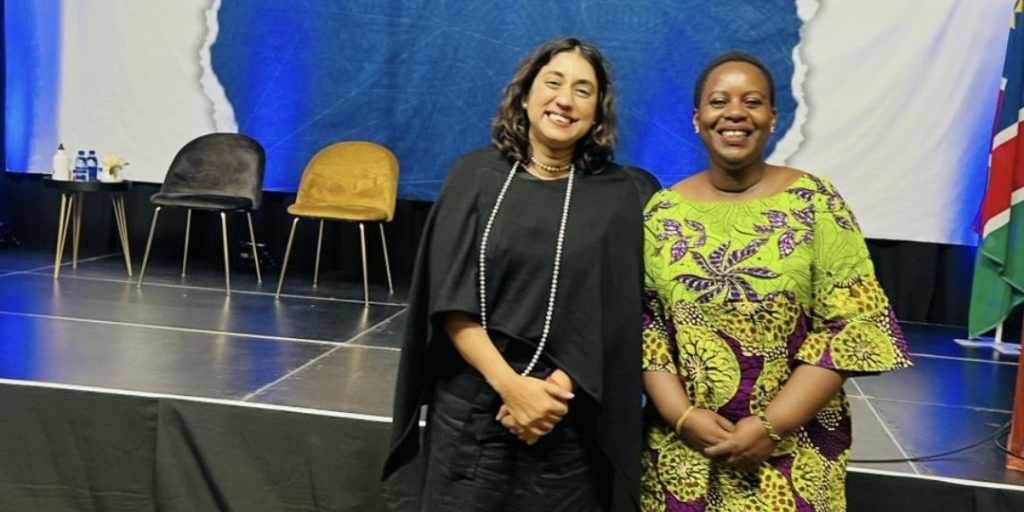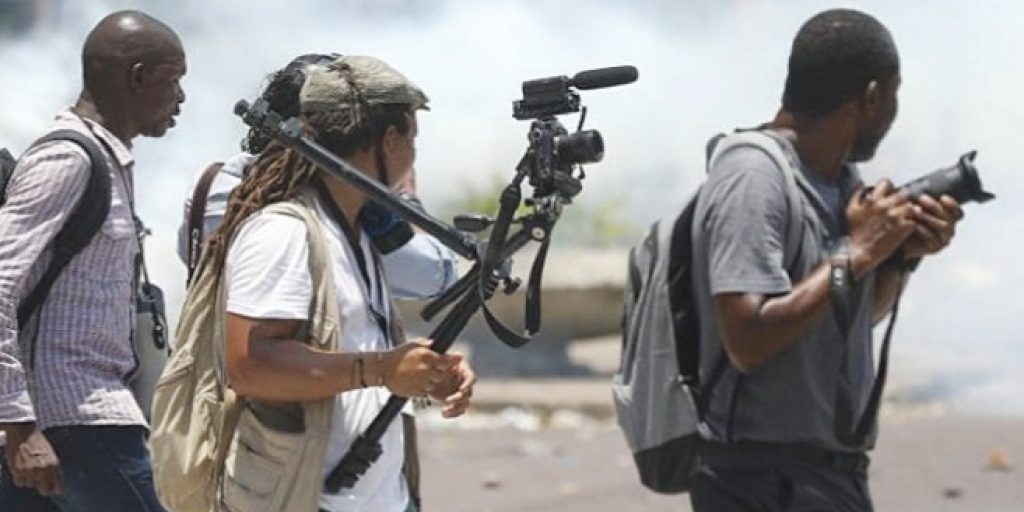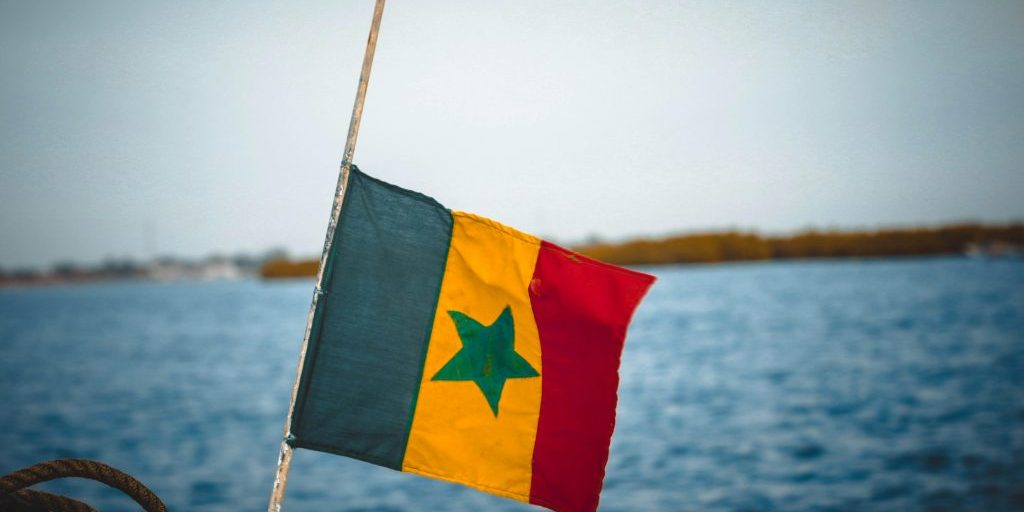The Special Rapporteur on Freedom of Expression and Access to Information in Africa celebrates 20 years
PICTURE: Special Rapporteur Commissioner Ourveena Geereesha Topsy-Sonoo and Neema Lugangira, a Member of Parliament in Tanzania, at an Information and Communication Rights conference in Namibia in June 2023 (the picture, by FES Media Africa, first appeared here)
The Centre for Human Rights at the Faculty of Law at the University of Pretoria is among the many which congratulated the Special Rapporteur on Freedom of Expression and Access to Information in Africa (the Special Rapporteur) on the significant occasion of its 20th anniversary on 7 November.
‘Since its establishment in 2004, the Mechanism has exhibited a remarkable dedication to the principles of freedom of expression and access to information, resolutely advocating for these fundamental rights,’ said the Centre, which commended ‘the Mechanism’s steadfast advocacy for these fundamental rights across the continent, reflecting a persistent commitment to promoting freedoms essential for public engagement, democratic governance, and the realisation of broader human rights’.
The current Special Rapporteur is Commissioner Ourveena Geereesha Topsy-Sonoo whose work falls within one of the special mechanisms created by the Africa Commission to monitor, report, and advise on human rights issues within their specific mandate.
Topsy-Sonoo, a national of Mauritius, was elected as a member of the African Commission on Human and Peoples’ Rights in October 2021 and sworn into office on 15 November 2021. She is also: the Vice-Chairperson of the Working Group on Extractive Industries, Environment and Human Rights Violations in Africa; a Member of the Working Group on the Death Penalty, Extrajudicial, Summary or Arbitrary Killings and Enforced Disappearances in Africa, and a member of the Resolutions Committee.
Topsy-Sonoo is a lawyer with expertise in International Maritime Law who works as a Parliamentary Counsel in the Attorney General’s Office. Her areas of experience include representing the State in court cases, tendering advice to various Ministries and drafting legislation.
It was established by Resolution 71, and adopted during the 36th Ordinary Session of African Commission on Human and Peoples’ Rights (ACHPR) held in Dakar, Senegal, from 23 November to 7 December 2004.
The Mechanism was initially titled the Special Rapporteur on Freedom of Expression, with its primary objective being the promotion and safeguarding of freedom of expression across States Parties to the African Charter on Human and Peoples’ Rights.
In November 2007, at the 42nd session held in Brazzaville, Republic of Congo, the Commission decided to renew the mandate of the Special Rapporteur with the amended title, Special Rapporteur on Freedom of Expression and Access to Information in Africa.
The Special Rapporteur has been instrumental in shaping the development of the continent’s normative frameworks on freedom of expression and access to information.
Key achievements include leading the adoption of essential instruments such as
- the Model Law on Access to Information for Africa (2013), which aimed at providing legislative guidance on the development of access to information legislation, in line with international human rights standards
- the Guidelines on Access to Information and Elections in Africa (2017) which were aimed at promoting electoral transparency and providing guidance to key electoral stakeholders on the categories of information they should proactively disclose throughout the electoral process, so that the electorate make informed decisions, and
- the 2019 Declaration of Principles on Freedom of Expression and Access to Information in Africa
‘The 2019 Declaration replaced the 2002 Declaration of Principles on Freedom of Expression in Africa,’ explained the Centre for Human Rights. ‘While the 2002 Declaration elaborated on Article 9 of the African Charter [which upholds the rights to freedom of expression and access to information], it did not adequately address emerging issues over the past two decades, particularly concerning access to information and the intersection between Article 9 rights and the Internet.’
The 2019 Declaration updated and reinforced the principles for upholding those rights, by guaranteeing individuals the ‘right to receive, express and disseminate information both online and offline, ensuring alignment with international human rights and standards’.
The Mechanism has also adopted several important Resolutions addressing specific Member States and broader thematic issues related to freedom of expression and access to information across the continent.
Notable resolutions concerning specific member states include those focusing on freedom of expression in Eswatini, Zimbabwe and Somalia, with particular emphasis on elections, media freedom and the safety of journalists and other media practitioners.
Thematic resolutions have addressed critical areas such as
- the need to repeal criminal defamation laws in Africa
- safeguarding women against digital violence
- addressing issues regarding Internet shutdowns and elections in Africa, and
- the deployment of mass and unlawful targeted communication surveillance and its impact on human rights in Africa
The most recent Resolution 581 mandates the Special Rapporteur to undertake a study on the extent of implementation of the ACHPR soft laws on access to information in Africa.
The Centre for Human Rights noted ‘key milestones in the realm of freedom of expression and access to information in Africa’, acheived through the Mechanism.
‘One notable achievement is the adoption of access to information legislation by 29 countries across the continent. This significant development reflects a broad commitment to enhancing accountability, transparency and promoting good governance.
Access to information laws ideally should mandate the disclosure of information held by public bodies and relevant private entities, thereby empowering the public with the right to access crucial information that impacts the socio-economic and political spectrum.
‘An access to information framework, enables a more informed public and supports the fight against corruption by making it more difficult for public officials to conceal information from the public.
‘These legislative advancements not only illustrate a growing recognition of the importance of access to information but also set a precedent for other nations to follow, reinforcing the overall effort to ensure that governance in Africa becomes more transparent, accountable, and responsive to the needs of its citizens.’
It gave the example of Namibia’s 2022 Access to Information Act which was adopted following the Model Law on Access to Information for Africa, and which ‘incorporates a presumption of disclosure, as envisaged in the Model Law and the 2019 Declaration’.
‘Additionally, Botswana [enacted] a Bill through legislative processes, further demonstrating the ongoing efforts to enhance access to information across the continent.’
The Centre said ‘South Africa exemplified significant progress in media plurality and diversity, marked by a vibrant media landscape that reflects a wide range of political, social, and cultural viewpoints’.
‘Its legal and regulatory framework supports independent operation of various media outlets, including newspapers, television channels, radio stations and digital platforms.
‘The dynamic press and active civil society contribute to robust public debate and investigative journalism, playing a crucial role in uncovering corruption and holding officials accountable, demonstrating the impact of a free and diverse media on democratic governance.’
It further stated that it was even ‘more commendable’ that South Africa had ‘transformed the South African Broadcasting Corporation into a public service broadcaster accountable to the public through legislative and other accountability mechanisms, as envisaged in the 2019 Declaration’.
Yet, ‘challenges persist’.
‘Many countries lack specific access to information laws, leading to poorly defined and inadequately protected rights. Where such laws do exist, their implementation often suffers due to insufficient resources, lack of political will, or bureaucratic inefficiencies, resulting in limited public access to crucial information.
‘Systemic issues like corruption and political interference further impede effective information access.
‘Restrictive laws and digital repression tactics negatively impact the freedom of expression landscape.
‘Many countries have enacted laws that curtail free speech, often under the guise of maintaining national security or public order. These restrictions are compounded by digital repression tactics such as Internet shutdowns, which are frequently employed to suppress protests and control dissent.
‘Several countries, including Ethiopia, Mozambique and Senegal have taken this unfortunate approach.
‘The use of illegal targeted and mass surveillance in the digital age exacerbates the challenge by significantly infringing on privacy and stifling free expression. In a landscape where personal data is increasingly vulnerable, such surveillance practices create a pervasive atmosphere of fear and self-censorship..
‘The spread of misinformation and disinformation in the digital age undermines information integrity and distorts public discourse. The rapid dissemination of false content through social media erodes trust in credible sources, creates public confusion, and exacerbates social divisions.
‘Combatting this challenge requires enhancing media literacy, improving fact-checking, and ensuring greater accountability from digital platforms.
‘Additionally, online violence, including harassment and abuse, disproportionately affects women, creating a hostile and unsafe digital environment that discourages their participation in public discourse.’
The Special Rapporteur on Freedom of Expression’s mandate calls for the Mechanism to:
- Analyse national media legislation, policies and practice within Member States;
- Monitor their compliance with freedom of expression standards and advise Member States accordingly;
- Undertake investigative missions to Member States where reports of massive violations of the right to freedom of expression are made and make appropriate recommendations to the African Commission;
- Undertake country missions and any other promotional activity that would strengthen the full enjoyment of the right to freedom of expression in Africa;
- Make public interventions where violations of the right of freedom of expression have been brought to his/her attention; keep a proper record of violations of the right of freedom of expression and publish this in his/her reports submitted to the African Commission, and
- Submit reports at each ordinary session of the African Commission on the status of the enjoyment of the right to freedom of expression in Africa.




